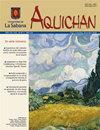大学生抑郁症状的相关因素
Q3 Nursing
引用次数: 1
摘要
目的:探讨大学生抑郁症状的发生频率及其相关因素。材料和方法:这是一项采用定量方法的横断面描述性研究,在一所高等教育机构进行。本研究采用来自不同地区的571名本科生作为方便样本。使用问卷收集社会人口统计学/学术数据,以及抑郁症状及其关联、生活习惯、情绪方面和可能的饮食失调。资料分析采用描述性统计和Pearson卡方检验,显著性水平为5% (p值≤0.05)。结果:大学生出现睡眠障碍(61.1%)、自信心下降(50.9%)等抑郁症状。抑郁症状与课程、学业表现满意度、肥胖、糖和甜食的摄入、体育锻炼的练习和频率有关。结论:期望本研究的结果有助于人们的批判性和反思性思维,以扩大关于该主题的知名度和科学研究,并增加心理健康管理的资源,减少产生的耻辱感。本文章由计算机程序翻译,如有差异,请以英文原文为准。
Factors Related to Depressive Symptoms in University Students
Objective: To identify and discuss the frequency of depressive symptoms and their associated factors in university students.
Materials and method: This is a cross-sectional and descriptive study with a quantitative approach, conducted in a Higher Education Institution. The study was developed with a convenience sample consisting of 571 undergraduate students from different areas. A questionnaire was used to collect sociodemographic/academic data, as well as depressive symptoms and their associations, life habits, emotional aspects, and possible eating disorders. For data analysis, descriptive statistics and Pearson’s chi-square test were used for associations, with a significance level of 5 % (p-value ≤ 0.05).
Results: The university students presented depressive symptoms such as sleep disorders (61.1 %) and reduced self-confidence (50.9 %). There was an association of depressive symptoms with the course, satisfaction with academic performance, obesity, consumption of sugars and sweets, and practice and frequency of physical activity.
Conclusions: It is expected that the results of this research contribute to the population’s critical and reflective thinking to expand visibility and scientific studies referring to the theme, as well as to increase resources for the management of mental health and reduce the stigmas generated.
求助全文
通过发布文献求助,成功后即可免费获取论文全文。
去求助
来源期刊

Aquichan
NURSING-
CiteScore
1.10
自引率
0.00%
发文量
32
审稿时长
>12 weeks
期刊介绍:
Aquichan, a journal of medical and health sciences from the field of health sciences and, more specifically, nursing, publishes articles resulting from investigations from a point of view of epistemology, evidence-based practice, chronic care, promotion and prevention. The articles are for the academic and scientific community, both in Colombia and abroad.
The journal accepts original, previously unpublished papers in Spanish, English, and Portuguese, which are the product of a research or a review and which are not being evaluated by other scientific journals, either in print or electronic form.
 求助内容:
求助内容: 应助结果提醒方式:
应助结果提醒方式:


